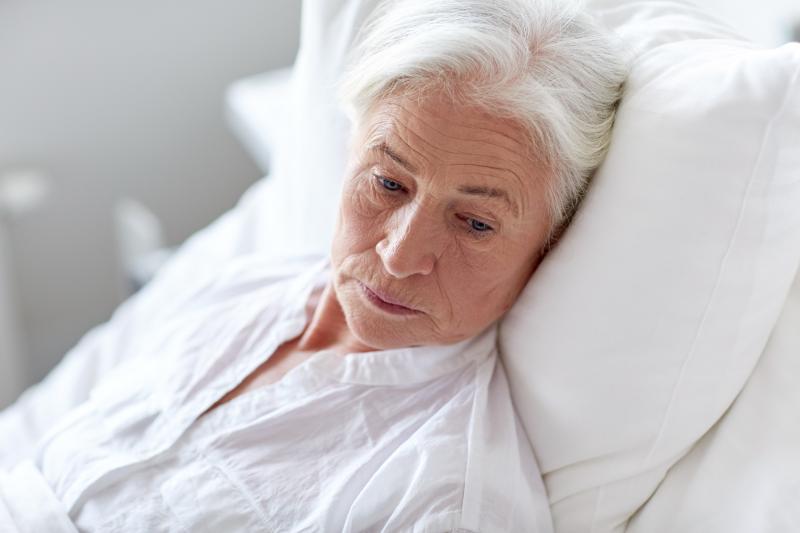Road to recovery: Does COVID-19 exact heavy mental toll on the infected?





Most COVID-19 patients come back from their illness unscathed in psychiatric terms, presuming that infection with SARS-CoV-2 follows a similar course to that with SARS-CoV or MERS-CoV, a study reports. In the acute stage, however, SARS-CoV-2 may cause delirium, although there is little to suggest that neuropsychiatric complications can occur beyond such a short-term syndrome.
Some of the reasons why the COVID-19 infection might have psychiatric consequences in the infected population relate to the concern about the illness outcome, stigma, and amnesia or traumatic memories of severe illness, according to the investigators. [Lancet Psychiatry 2020;7:228-229; Qual Health Res 2008;18:729-738; Clin Intensive Care 1998;9:199-205]
On the other hand, neuropsychiatric consequences can arise either through direct effects of infection of the central nervous system or indirectly via an immune response or medical therapy, they explained. The receptor through which SARS-CoV-2 enters human host cells, namely the angiotensin-converting enzyme 2 receptor, has little expression in the brain. But previous influenza pandemics have been associated with lingering neuropsychiatric aftereffects, so it is conceivable that other viral infections on a large scale could induce sustained mental morbidity. [J Med Virol 2020;doi:10.1002/jmv.25728; Science 2020;367:1444-1448; Front Psychiatry 2020;11:72]
“Given that a very large number of individuals will be infected with SARS-CoV-2, the immediate impact on mental health could be considerable,” the investigators said.
ICU delirium
In the current study, the investigators performed a meta-analysis of 72 independent studies evaluating both the acute and post-illness psychiatric as well as neuropsychiatric features of coronavirus infections, including early COVID-19 data from seven medRxiv preprints. Quality was either low or medium in 68 studies (94 percent).
The total number of coronavirus cases was 3,559, of which 2,068 were SARS-CoV, 515 MERS-CoV, and 976 SARS-CoV-2. The mean age of participants ranged from 12.2 years to 68.0 years, with the post-illness follow-up time varying between 60 days and 12 years. Studies were from China, Hong Kong, South Korea, Canada, Saudi Arabia, France, Japan, Singapore, UK, and USA.
In the SARS and MERS population, common symptoms reported during the acute illness stage included confusion (27.9 percent), depressed mood (32.6 percent), anxiety (35.7 percent), impaired memory (34.1 percent), and insomnia (41.9 percent). One study reported steroid-induced mania and psychosis in 13 of 1,744 SARS patients (0.7 percent).
Data from qualitative studies revealed the prominence of loneliness, boredom, and frustration resulting from isolation, with patients concerned about family members who were already infected, spreading the virus to other acquaintances, and facing death. [Lancet Psychiatry 2020;doi:10.1016/S2215-0366(20)30203-0]
Following recovery from the infection, at a follow-up range of between 6 weeks to 39 months, the most predominant symptoms were depressed mood (10.5 percent), insomnia (12.1 percent), anxiety (12.3 percent), irritability (12.8 percent), memory impairment (18.9 percent), and fatigue (19.3 percent). One study documented traumatic memories (30.4 percent) and sleep disorder (100.0 percent). Stigma emerged as a major theme from the qualitative studies.
Pooled data showed the point prevalence values for several psychiatric symptoms in the post-infection stage, as follows: 32.2 percent for post-traumatic stress disorder, 14.9 percent for depression, and 14.8 percent for anxiety disorders. More than three-fourths of patients (76.9 percent) were able to return to work at a mean follow-up of 35.3 months.
In the COVID-19 population, there was evidence for delirium in the acute illness stage. Confusion was reported in 65 percent of patients, agitation in 69 percent, and altered consciousness in 21 percent of those who subsequently died.
At discharge, 33 percent of patients showed a dysexecutive syndrome. There were two reports of hypoxic encephalopathy and one of encephalitis.
Life after infection
“To our knowledge, this is the first systematic review and meta-analysis of the psychiatric consequences of coronavirus infection,” the investigators said.
They indicated that it might be too early to tell the scale of the mental health toll of the COVID-19 pandemic on survivors of the infection, as data on the acute effects of the illness are limited and no data exist on the post-illness phase.
“The scientific literature predominantly consists of data on patients with SARS and MERS treated in hospital, so there should be caution in generalizing any findings to COVID-19, particularly for patients who have mild symptoms,” the investigators pointed out.
“Previous coronavirus epidemics have been associated with a significant psychiatric burden in both the acute and post-illness stages. In the current COVID-19 pandemic, there is already evidence of delirium acutely,” they added.
To that end, the investigators stressed the importance of physicians being alert to the possibility of depression, anxiety, fatigue, post-traumatic stress disorder, and rarer neuropsychiatric syndromes among SARS-CoV-2 infection survivors. “High-quality, peer-reviewed research into psychiatric symptoms of patients infected with SARS-CoV-2, as well as into potential mitigating factors and interventions is needed.”